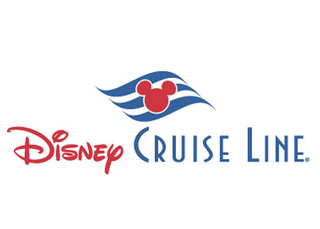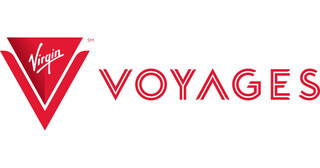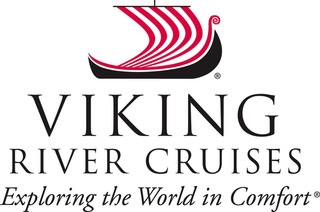The Best Cruise Lines
The best cruise lines offer travelers the opportunity to experience some of the world’s finest vacation destinations while enjoying a wide variety of amenities for every member of the family. From pools, waterslides and mini golf for kids to spas, shows and nightclubs for adults, there is something for everyone on a cruise ship.
It doesn’t matter if you want adventure, relaxation or a combination of both, the best cruises offer a convenient and all-inclusive way to explore multiple destinations without the hassle of planning individual itineraries.
If you’re ready to hop aboard, here are Money’s picks for the five best cruise lines of 2023.
- Carnival - Best for Budget Cruises
- Disney - Best for Customer Satisfaction
- MSC - Best Luxury Experience for a Mainstream Brand
- Norwegian - Best for Solo Travelers
- Royal Caribbean - Best for Families
- Virgin Voyages - Best for Adults-only Cruise
- Viking Cruise - Best for River Cruises
Best Cruise Lines Reviews
- Many short cruises for low fares
- Lots of activities for kids and adults
- Fun, exciting atmosphere
- Not the best if you seek a quiet, laid back experience
- Some activities and excursions cost extra
- Larger ships can feel crowded
Why we chose it: Carnival cruise line offers short, affordable cruises to tropical destinations like the Caribbean and Mexico.
Carnival’s low fares and fun amenities make it a popular choice for those looking for a quick, affordable cruise (although it also offers longer trips to Europe, Australia and more). Its ships cater to travelers looking for an entertaining, exciting getaway — with an emphasis on pools, waterslides, mini-golf and karaoke, plus comedy shows, casino games and nightclubs for adults.
Those who are watching their spending closely should be careful, though. Extras like shore excursions and souvenirs can add up quickly, as can certain on-board activities. Carnival also offers all-inclusive rates that will help avoid any surprise expenses, but travelers should of course be prepared to spend more up front.
- Highly regarded by customers
- Multiple dining and entertainment options included in fare
- Several Youth Clubs
- Pricier than other mainstream cruise options
- Families can dominate, despite adult-only spaces
- No "unlimited alcohol" drink package
Why we chose it: Disney cruise line received the highest overall average rating from customers on Cruiseline.com, and its staff and service were also ranked highly.
Disney is famous for its attention to detail and focus on the guest experience in its theme parks, and those attributes extend to its cruises, too. Families will enjoy meet-and-greets with Disney characters, themed restaurants, and a slew of onboard activities and entertainment. Staterooms are also family friendly, with storage that’s designed to accommodate multiple guests.
For those staying in certain room tiers, a concierge team is available to help travelers with special requests and booking excursions. And while Disney cruises primarily cater to families, they aren’t just for kids. The ships offer nightclubs, bars and adult-only pools and dining, too, as well as special activities and clubs for teens.
- High-end amenities and services in a regular ship
- Children under 18 travel for free in the same cabin as their parents
- European itineraries for both the Mediterranean and Northern Europe
- Can be very pricey
- Travelers could face a language barrier on some European trips
- Limited complimentary dining options
- Expensive Wifi package ($93 per cruise for 3GB)
Why we chose it: MSC’s Yacht Club gives travelers an exclusive experience without sacrificing all the options that come with a large, mainstream cruise.
Cruisers who seek an ultimate luxury experience must typically take a trip with boutique, small-ship cruise lines such as Seabourn that have relatively few crowd-pleasing attractions. For a premium fare, MSC’s Yacht Club offers what’s called a “ship-within-a-ship” experience — a dedicated VIP enclave on a larger cruise ship that gives guests the best of both worlds.
Yacht Club guests get 24-hour butler service and their own dedicated concierge, plus a premium drink and internet package. They also enjoy complimentary access to the ship’s spa as well as other perks like a luggage packing and unpacking service and priority check-in and check-out. MSC is a European cruise line that offers itineraries in the Caribbean as well as to popular destinations in Europe like the Mediterranean and Norway.
- Dedicated cabins and activities for single travelers
- All the amenities of a major cruise
- Itineraries in Asia, Australia and New Zealand
- Single cabins are often small and located on the interior of the ship
- Some onboard activities, like video arcade, not included in fare
- Wi-Fi packages are more expensive than other lines ($29.99 per day for one device)
Why we chose it: Norwegian was a pioneer in solo staterooms, and continues to have more options for single travelers than many other cruise lines.
Norwegian’s solo staterooms make it possible for single travelers, or those who prefer not to share cabins with friends or family, to book their own room without paying twice the fare (since most cruise rates are calculated for double occupancy cabins). These cabins are generally located in the interior of the ship, so be aware that they might not have windows or balconies. Solo travelers have the option to book a regular stateroom, but they’ll generally have to pay the two-person fare.
Single cruisers on Norwegian have access to a dedicated lounge and meetups where they can mingle with other travelers, too. That’s not to mention all the regular activities and excursions Norwegian offers, from rock climbing and bowling to spa treatments to boxing classes.
- Diverse range of activities for cruisers of all ages
- Wide variety of destinations
- Less expensive than a Disney cruise
- The larger ships can feel crowded
- Price can be high due to onboard activities included in fare
- Not the best option for those looking for a relaxed cruise experienc
Why we chose it: All types of travelers, from kids to teens to adults to seniors, will find something fun to do on a Royal Caribbean cruise — and without breaking the bank.
Royal Caribbean’s wide range of activities and amenities include a little something for everything, from waterslides and ziplines to dance classes to movie nights. The ships even offer babysitting services so grownups can have a night out at a restaurant, nightclub or show. Royal Caribbean International’s ships sail to a wide variety of destinations, from shorter trips to the Caribbean and Mexico to longer vacations to Alaska, Europe, Asia and the South Pacific.
- Adults-only cruise line
- Specialty restaurant dining — Mexican and Korean food— included in fare
- Free Wi-FI included
- No alcoholic drinks package
- The majority of cabins tend to be small
- Smaller pools than on other cruise lines
Why we chose Virgin Voyages: Virgin Voyages offers adult-only cruise vacations with all dining options and soft drinks included in the fare.
Virgin Voyages cruise line is a great option for travelers who want to enjoy a cruise vacation tailored exclusively for adults. Its ships offer a wide variety of specialty dining options, from a food-truck style market with a burger shop, taco shack and sushi bar.
Unfortunately, Virgin Voyages doesn’t offer an alcoholic drinks package like other cruise lines. However, to offset this drawback, drink prices are reasonable ($5-6 for a beer and $9 for basic cocktails), including the tip.
With a fleet of three ships, Virgin Voyages offers itineraries from two to 14 nights. As for destinations, Virgin has itineraries along the Caribbean, the Mediterranean, the South Pacific and even a 14-day transatlantic journey from Barcelona to Miami.
- Small ships known as "longships" that carry 190 passengers
- Free shore excursion in each port
- Complimentary dining, including room service
- Doesn't offer itineraries shorter than eight days
- All river cruise guests must be at least 18 years old
- No casinos
Why we chose Viking Cruises: Viking Cruises offers river luxury river cruises mostly in Europe, but also in Asia, Africa and the United States.
Viking Cruises are best known for their European river cruise itineraries. These trips include complimentary dining and free on-shore excursions so guests can get the most out of stops in cities such as Budapest, Lyon, Amsterdam and Prague.
Viking Cruises also offer many on-board activities such as lectures, cooking classes and MET: Live in HD screenings. For the more intellectually inclined travelers, ships have a library with a curated selection of books on art, history and biographies.
Ships also have a living room where guests can gather to talk or relax while listening to classical music performed by resident musicians.
While Viking Cruises is mostly known for its European itineraries, it also offers itineraries along the Mekong River in Vietnam and the Nile River in Egypt, giving travelers the opportunity to enjoy these rich destinations all from the comfort of a luxury ship.
A Guide to Cruise Lines
Before you buy a cruise, you’ll be well-served by understanding how these vacations work, what is and isn’t included in the fare and what it might cost to insure your trip in case the worst were to happen. In addition, it’s helpful to understand the types of cruises and cabins, and how best to choose among them.
How does a cruise vacation work
Cruising is a popular vacation option for millions of travelers around the world in large part because of its convenience. Travelers stay in one room for the entire trip while the boat travels from port to port. Cruisers enjoy lots of world-class amenities like restaurants, shows and water activities on board, and they also have the option to disembark and sightsee or participate in excursions when the ship docks.
What’s typically included in a cruise fare
In general, the price you pay for a cruise includes:
- Your cabin
- Meals in one or more dining areas on the ship
- Certain nonalcoholic beverages
- Some on-ship entertainment like movies on the deck and some kids programming
- Access to some amenities like pools and the fitness center
The other perks included in your cruise fare will depend on how much you pay; many larger cruise lines offer multiple tiers of fares. The lowest tier will be the cheapest, but you should expect to pay out of pocket for extras like drinks, certain restaurant meals and activities and excursions once you’re on board. Higher fare tiers include more amenities but are significantly more expensive. Some luxury cruises only offer all-inclusive fares.
What's usually not included in a cruise package
In general, cruise fares – especially less expensive ones – do not include:
- Alcoholic beverages
- Excursions to shore
- Specialty restaurants outside of the main dining areas
- Spa treatments
- Gratuities for staff
Do you need a passport to go on a cruise?
You need a passport to go on a cruise in two instances:
- If one or all of the international cruise destinations require it. If none do, you only need proof of citizenship, such as a government-issued driver’s license or birth certificate.
- You will also need a passport for trips that begin in one port and end in another. For example, if you board your cruise in Miami, FL, stop at a foreign port and end the trip in San Diego, CA.
Types of Cruises
Cruises are not one-size-fits-all vacations. Instead, many different types of itineraries suit many different types of travelers. Here are a few of the most common:
Mainstream ocean cruises
These are some of the most popular itineraries because of their accessibility, affordability and wide variety of activities. The ships tend to be large – some can carry more than 6,000 passengers – and are packed with amenities. Carnival, Royal Caribbean and Norwegian fall into this category.
Premium cruises
These cruises are a step up from those on mainstream ocean liners, and so tend to cater to a slightly older crowd. They typically boast more sophisticated amenities, too, like art collections and educational classes on sea days.
Premium cruises are generally mid-size (1,500-2,000 passengers) to large (over 2,000 passengers). Oceania and Princess Cruises cruises fall into this category.
Luxury cruises
Luxury cruises tend to be smaller, with more staff per guest and more deluxe amenities. Among the amenities, passengers can enjoy upscale accommodations, spas and sauna facilities, water sports equipment and fine dining. It goes without saying that they are significantly more expensive than a mainstream cruise. Azamara, Windstar and Viking Ocean cruises are three examples of luxury cruises.
Themed cruises
Themed cruises are cruises where a part of the trip is based on a theme or special interest such as Broadway shows, music, media or even crafts like knitting. Some themes are cruise-wide, while others are group itineraries with exclusive activities.
Cruise lines offering or hosting themed trips are Norwegian Cruise Line, Windstar Cruises, Princess Cruises and Royal Caribbean.
River cruises
While most cruises are on the ocean, some lines (like Viking) offer trips in smaller vessels that cruise along rivers. These tend to be quieter and attract an older clientele compared to a mainstream ocean cruise.
How much is cruise travel insurance?
You can expect to spend between 4% to 10% of your trip cost for cruise travel insurance. The final price will depend on your age, cruise cost, coverage type and trip length, among other factors.
We used an online cruise insurance marketplace to get a quote for a family of four (two adults and two kids) for a seven-day cruise to the Bahamas. If the family spends $3,200 for the trip, the insurance options range from $158 for basic insurance to $344 for a premium plan.
If you’re still wondering if travel insurance is worth it? We’ve calculated 7% of different cruise rates per person to give you a better idea:
| Trip cost | 7% of cruise fare (estimated cost) |
| $500 | $35 |
| $1,000 | $70 |
| $1,500 | $105 |
| $2,000 | $140 |
While travel credit cards offer some trip protection, we suggest you check out our list of best cruise travel insurance, as these plans are geared specifically for cruise trips. Other types of travel may benefit from traditional travel insurance.
Can you add travel insurance after booking?
Yes. However, you should purchase your insurance immediately after booking your trip. First, this ensures coverage if your trip is canceled or you can’t travel. Second, purchasing early may qualify you for add-on coverage like “cancel for any reason,” which is typically available only within a specific period (about 15 days) after you book your trip.
How to book a cruise
Here are some key aspects to consider when booking a cruise:
- Select a cruise line and ship - Look at the different types of cruises and decide which offers the type of experience you want. This includes finding a cruise line that offers amenities, activities, destinations and onboard experiences you want to experience.
- Choose a port - Select where the cruise starts and its ports of call. If you plan to tack a land vacation onto your cruise, opt for a destination where you may want to stay for a while – or use as a springboard to further travel. And research the ports in which the ship will stop along the way, to see how much those stopovers are of interest.
- Pick an itinerary and destinations - Decide what destinations you want to visit and the length of the trip. Look at the excursions and activities of each stop, so you can create a plan that aligns with what you want to see and do. As for length, cruises of seven days or more are popular, but those of three to five nights naturally tend to be less expensive.
- Select a cabin - Often, cruises have several cabin options, such as inside cabin, ocean-view, balcony cabin or suite. Consider where the cabin is located on the ship, the size of the room, and the amenities. Make sure the cabin you choose fits your budget and needs, but also think about how much time you expect to spend in the room itself.
- Establish a budget - Determine how much you want to spend on the whole trip. This includes the cruise cost and the cost of activities, excursions, souvenirs, and, possibly, airfare to and from the departure port.
- Book flights - If necessary, book your flight to and from your cruise departure port. Look for flights that arrive one day before your cruise departs to ensure you have enough time for any necessary connections or other arrangements.
How to choose the right cruise ship cabin
Keep your budget in mind when making this decision. As a rule, interior, windowless cabins are the least expensive, while cabins with ocean-view balconies are the priciest. Additionally, larger cabins and extra perks like early boarding usually come at a higher cost.
Stomach comfort is also a consideration. The lower and more central you are in the ship, the less the roll – and the lower the chance of motion sickness. You’ll also want to consider a cabin’s proximity to onboard amenities you plan on frequenting. (Conversely, if quietness is a priority, you may want to avoid busy, noisy areas.)
Tips for selecting the best cruise for you
Here are some key considerations when choosing a cruise. Think of:
- How you’ll prefer to spend your time. Ideally, the activities and amenities on a cruise should align with your interests. If you're a cruiser who likes spending a lot of time onboard rather than in port, daytime activities such as sports may be especially important to you. In addition, you may be more satisfied than most with an itinerary that’s more at sea than in port.
- Ship size. The largest cruise ships hold 5,000 passengers or more. While bigger vessels often boast the most varied amenities and activities, their size can lead to a noisier and more frenetic experience. Depending on your priorities, a smaller ship with a more relaxed vibe may suit you better, even if it lacks some of the pizzazz of a big boat.
- Time of year. A commitment to cruising within a specific season will limit your destination choices. In tropical regions, summer and fall can bring hurricanes. On many popular European cruises, such as Mediterranean cruises, winter seas can bring choppier conditions and cooler temperatures.
- Food quality and variety. If food quality and variety matter a lot to you, we recommend you research the available dining options. Look into user reviews to assess how timely and satisfying the meals were during previous cruises.
Best Cruise Lines FAQ
Do you have to be vaccinated to go on a cruise?
No, you can usually go on a cruise without being vaccinated for COVID-19 or other diseases. However, verify each destination's vaccine policies to ensure they have no requirements.
Also, look at your cruise line's policy terms, as these may detail requirements for unvaccinated people. Finally, check the Center for Disease Control and Prevention (CDC) site to see a detailed list of suggested vaccines per destination.
How old do you have to be to go on a cruise?
The minimum age requirement to go on cruises varies depending on the cruise line and itinerary. Typically, passengers traveling alone must be at least 21 years old on the day of embarkation.
Infants as young as six months are generally allowed on most cruises. Some cruise lines, like Celestyal Cruises and MSC Cruises, permit infants at least three months old.Can you go on a cruise pregnant?
What cruise ports are on the east coast?
Are pets allowed on cruises?
In short, no. There are exceptions for service animals, which many cruise lines allow. But the furry companion must perform specific tasks for its owner, such as guiding to assist in overcoming sight-impairment. Pets who provide only emotional support are not allowed.
Just want your pal along for company? Your only choice might be the Cunard line's pricey Queen Elizabeth 2. Your dog or cat can be carried on-board (in a kennel) for a charge (on top of your own fare) of between $800 and $1,600, depending on its size and species.
How We Chose the Best Cruise Lines
To compile our list, Money evaluated twelve cruise lines. We only evaluated major lines with trips that depart from the United States – hence, we excluded such companies as Virgin Voyages, Cunard, Azamara and Silversea Cruises.
We considered prices; the number of ships in each fleet; the flexibility to serve specific traveler types, such as families and singles; and the types of itineraries offered by each company.
We used customer satisfaction data from several sources, including Cruiseline.com, to inform our decision. We also considered ship inspection data published by the Centers for Disease Control and Prevention.
We made our picks with the understanding that no single cruise is the best choice for every type or traveler or every type of trip — each cruise line has strengths and weaknesses, and our aim is to highlight the strengths that differentiate the winners.
Summary of Money’s Best Cruises of 2023
- Carnival - Best for Budget Cruises
- Disney - Best for Customer Satisfaction
- MSC - Best Luxury Experience for a Mainstream Brand
- Norwegian - Best for Solo Travelers
- Royal Caribbean - Best for Families
- Virgin Voyages - Best for Adults-only Cruise
- Viking Cruise - Best for River Cruises















